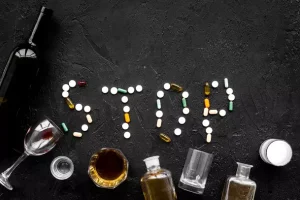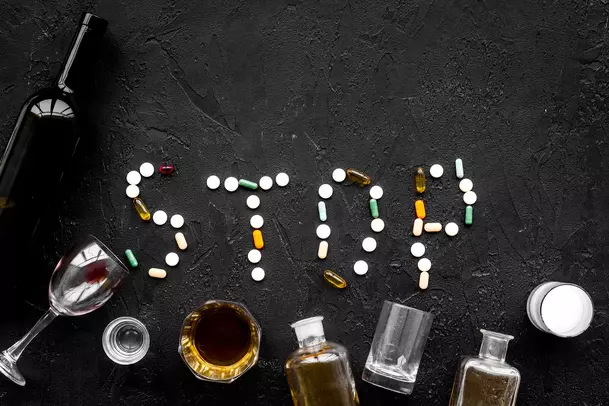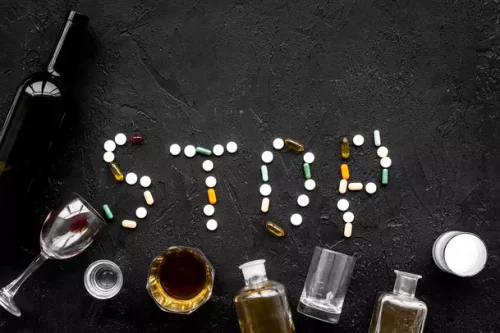Unmasking the Hidden Battle: Veterans, PTSD, and Substance Abuse

Binge drinking is when a person drinks a lot of alcohol (4-5 drinks) in a short period of time (1-2 hours). Veterans over the age of 65 with PTSD are at higher risk for a suicide attempt if they also have drinking problems or depression. The survey asked veterans about their mental and physical health needs, access to care, and other factors that can affect their well-being, including food instability. https://ecosoberhouse.com/ Dual diagnosis can be a difficult condition to manage because both mental illness and the addiction need to be treated. Through this process, clients can gain insight into themselves while also learning healthier ways to manage stress, heal from trauma, and improve relationships. Psychotherapy can also provide emotional support when facing life changes or other challenging experiences.

Innovations in treating co-occurring disorders
- If you have a drinking problem, you are more likely than others with a similar background to go through a traumatic event.
- Investigating a range of pharmacological treatments—including those already approved or considered off-label – plays a crucial role in crafting holistic care strategies for veterans struggling with SUD and PTSD.
- In fact, at some point in their lives, 7 out of every 100 Veterans will have PTSD.12 All of this—as well as military sexual trauma or other past traumas they experienced—may lead service members and Veterans to misuse alcohol.
Therefore, it was unknown how many of the men without combat experience ptsd and alcohol abuse were Veterans. Instead, it encourages veterans with AUD to reach out to resources for the help they need—beginning with their physician, local support groups, mental health professionals, the Vet Center or a spiritual/religious adviser. Another link on this page directs veterans to finding treatment for their alcohol dependence.

Why Veterans Don’t Find Treatment?

For veterans facing emergencies, the Veterans Crisis Line provides confidential help at any time. To aid those struggling with substance use disorders, free counseling services like SAMHSA’s 24/7 confidential helpline are available to assist with issues related to substance misuse. A participant level meta-analysis called Project Harmony combined and analyzed individual patient data from 36 randomized controlled trials of psychological and pharmacological treatment for PTSD and SUD. Results showed that integrated, trauma-focused interventions that address both disorders have the greatest benefit relative to treatment as usual (10) and other non-trauma focused, single-disorder, or control condition approaches (11). Post-traumatic stress disorder (PTSD) is a mental health condition that can have a devastating impact on individuals who experience it. It typically develops in response to a traumatic event, such as an accident, violent act, natural disaster, or other life-altering experience.
Pakistani Students Facing Alarming Rise in Rare Eating Disorders
Psychotherapy is a form of mental health treatment that focuses on helping individuals identify and work through their thoughts, emotions, and behaviors to improve overall well-being. It is a collaborative process between the client and therapist that typically involves talking about difficult issues or problems out loud. Investigating a range of pharmacological treatments—including those already approved or considered off-label – plays a crucial role in crafting holistic care strategies for veterans struggling with SUD and PTSD. This is supported by findings from a recent randomised controlled pilot trial. But research has been scant on whether combat experience is linked to alcohol use to cope with PTSD.
We also offer treatment and support for health conditions that can be related to substance use problems, like:
Among military and veteran populations, the risk for both PTSD and alcohol misuse may vary because of differences in demographic factors, aspects of military culture, and trauma or stress exposure. Relatively little research has addressed risk factors for co-occurring PTSD and AUD. Therefore, we do not know the extent that risk factors may increase the risk for one disorder or both, or whether these risk factors may have additive or interactive effects. Located near El Paso, Texas, in Santa Teresa, New Mexico, PEAK provides inpatient services for veterans addicted to alcohol.
At Tranquil Shores, military veterans receive the alcohol addiction help they need. In Tampa, Florida, this program is located so veterans can focus on their need to recover. Because AUD develops in conjunction with depression or PTSD, treatment for co-occurring disorders is also provided.
PTSD Consultation Program
Veterans who are diagnosed with AUD have several options through the VA. These include medication options, treatment, such as outpatient, inpatient and IOP. Within these treatment options, the veteran receives individual and group therapy, marriage and family counseling, and continuing care and relapse prevention. If the veteran has a VA primary care provider, they can speak to their doctor about their problems with alcohol. If they served in Operation Enduring Freedom, Operation Iraqi Freedom or Operation New Dawn, by calling their local VA medical center and asking for the OEF, OIF or OND coordinator, they may be able to find help. Going through a trauma—whether or not you develop PTSD—can lead to alcohol use problems.

To our knowledge, no study has examined strategies that aim to prevent the development of comorbid PTSD and AUD in military and veteran populations. However, some research has examined the prevention of PTSD or AUD separately in this population, which could inform the prevention of comorbid PTSD and AUD. We provide many options for Veterans seeking treatment for substance use problems ranging from unhealthy alcohol use to life-threatening addiction. The researchers focused mostly on the responses to the yes-no question, “Did you ever drink alcohol to improve your mood or to make yourself feel better when you were experiencing PTSD symptoms?

Substance Misuse
In order to protect the rights and freedoms of all Americans, veterans go to some of the harshest places and worst conflicts on earth. They come home to a hero’s welcome, but that does not mean the scars and stresses of their service disappear. Veterans face lots of obstacles when readjusting to civilian life, and alcohol is often a crutch to cope. For example, almost 63% of recent vets reported a service-connected mental or physical disability compared to 30% during RAND’s 2010 report on New York veterans.
- Measurement based care (MBC; 29) or the use of patient-reported information collected as part of routine care, can be used to inform clinical care and shared decision making, individualize treatment, and assess progress toward recovery goals.
- Relatively little research has addressed risk factors for co-occurring PTSD and AUD.
- People with PTSD are more likely than others to have problems with drugs and alcohol.
- To aid those struggling with substance use disorders, free counseling services like SAMHSA’s 24/7 confidential helpline are available to assist with issues related to substance misuse.
- They also learn how to create a new, healthy lifestyle, creating life goals.
Understanding the link between veterans and substance abuse
This site also provides information on addiction, depression, PTSD and seeking help. Unfortunately, the stigma of addiction and mental illness stops too many veterans from seeking the help they need. This site also encourages veterans and their family members to gather the support they need and reach out so they can begin recovery.

No Comments